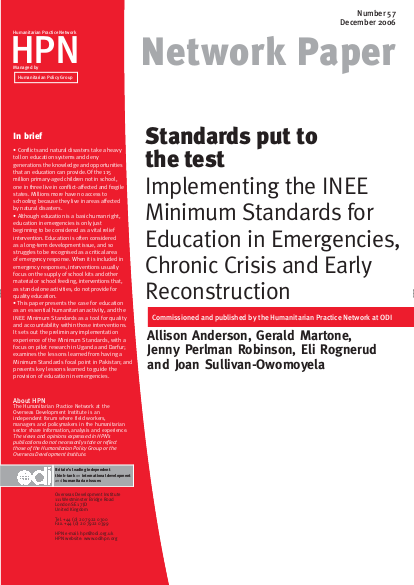Implementing the INEE Minimum Standards for Education in Emergencies, Chronic Crisis and Early Reconstruction

This paper presents the case for education as an essential
humanitarian intervention, and the INEE Minimum
Standards as a tool for quality and accountability within
those interventions. It sets out the preliminary
implementation experience of the INEE Minimum
Standards, highlighting the process globally as well as
focusing on the challenges and lessons learned from initial
pilot research in Uganda and Darfur. It also examines the
lessons learned from having a Minimum Standards focal
point in Pakistan, working to institutionalise the Standards
both within one organisation, UNESCO, and the new
humanitarian cluster system. Finally, the paper presents a
number of lessons applicable to the wider humanitarian
community, and describes the next steps for the
implementation of the INEE Minimum Standards.
